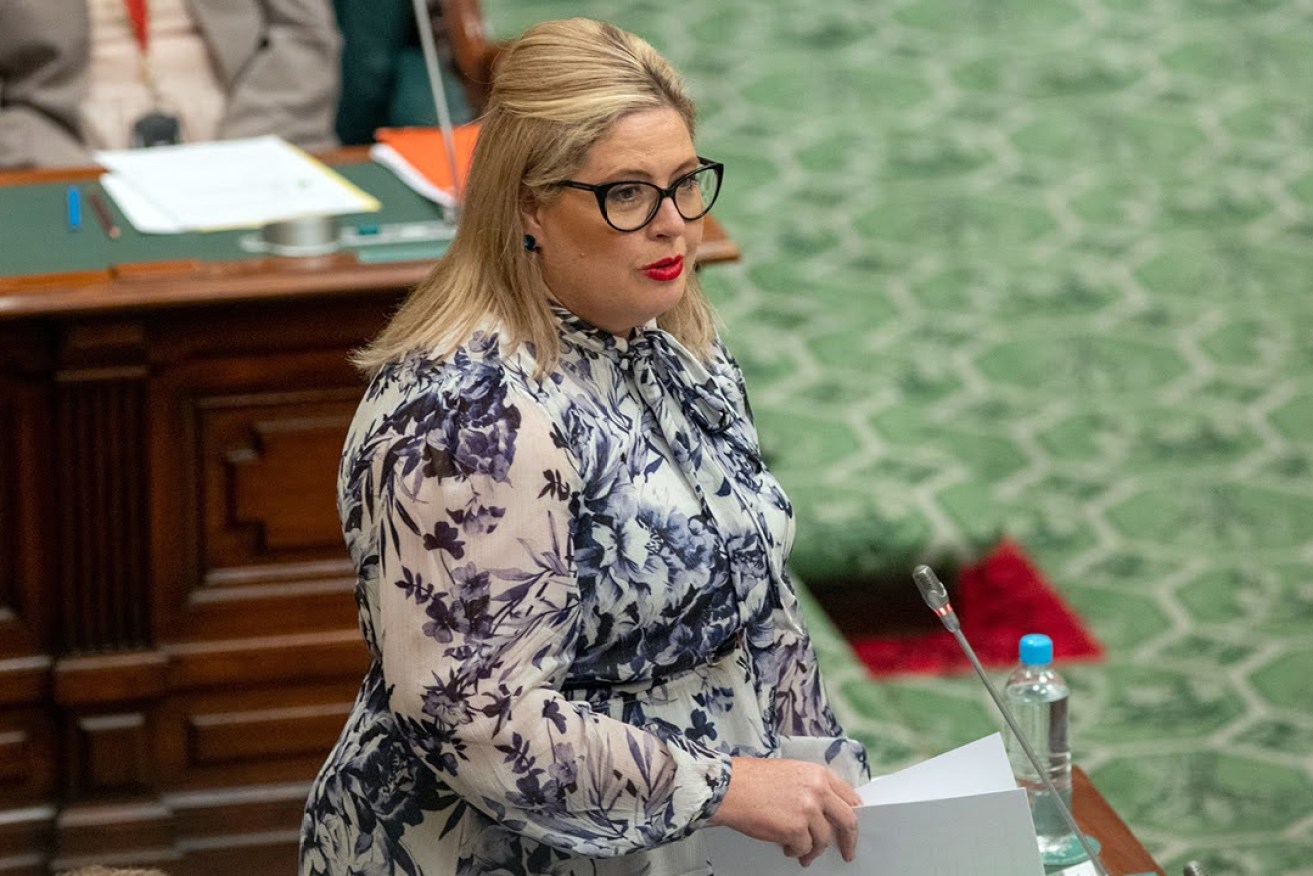Report lifts lid on foster carer investigation toll
The state government will immediately narrow the threshold for foster carer investigations, after a damning report found carers feel “petrified” that children could be removed from their care because of “trivial” or “malicious” accusations.

Child Protection Minister Katrine Hildyard said the app was one aspect of the Malinauskas Government's commitment to tackling domestic and family violence. Photo: Tony Lewis/InDaily
The report, written by child protection expert Dr Fiona Arney and released by the state government this morning, found that the system for reporting concerns about foster and kinship carers was “open to misuse and vulnerable to trivial or false allegations”.
It found that carers feel “petrified, stunned, powerless, voiceless, shamed, judged, living under a microscope, mistrusted and vulnerable” by the care concerns process, with their “greatest fear” being that children will be removed from their care.
“The process itself was described as traumatic, intimidating, challenging, upsetting, demoralising and scary,” Arney wrote in her 186-page report.
“Undoubtedly, care concern processes are having a significant impact on foster and kinship carer recruitment and retention in South Australia.”
Care concerns are reports filed by anyone who might think that there could be something happening within the home of a child in state care that could be detrimental to their safety.
Once they are lodged, they are assessed by the Department for Child Protection and in some cases referred to its “care concerns investigation unit” for further scrutiny.
According to the latest Report on Government Services data, in 2020-21, 30 South Australian children in care were the subject of a child protection substantiation and the person responsible was living in the household providing care.
But Arney wrote that the number was likely to be “much higher” because care concerns notices can also be lodged on the grounds of “deficit in care” in South Australia.
She claimed that the threshold for substantiating a “deficit in care” concerns notice was “low, subjective and subject to cultural bias”.
Many of the 149 foster and kinship carers who provided submissions to the inquiry said they were the subject of “frivolous” or “trivial” care concerns investigations.
They and others were afraid of speaking up because they fear retribution through care concerns and having children removed in the process.
Examples included carers being investigated because their children did not have a jumper or lunchbox at school, they had not signed a school diary, there was a dog in the house with an infant, their child had a bug in their hair and a carer not wanting to leave children in the care of someone unknown to them.
Carers also reported been investigated when they asked for parenting and caregiving support, with child protection workers interpreting their requests as “carers struggling and not coping”.
“The care concern response system was seen as being easily exploited for malicious allegations due to low thresholds for care concerns, the lack of independence in the care concern process, the anonymity of the person raising the concern and the absence of natural justice in the response process,” Arney wrote.
“Where there were allegations of malicious concerns raised in the course of casework, this was viewed as being in retaliation for complaints raised or advocacy provided by foster and kinship carers, including requests for assessments, support and change of worker, and was intended to threaten, bully, harass, coerce or gain compliance from carers.
“Many carers throughout the inquiry identified they and others were afraid of speaking up because they fear retribution through care concerns and having children removed in the process.”
According to Arney, carers under investigation can have their children suddenly removed from their care without them having the opportunity to explain what is taking place.
“Outcomes of child removal included siblings becoming separated and some children moving from their family-based placement to residential care,” she wrote.
“Even when the care concern was unsubstantiated, some children did not return to the original placement from which they were removed for several months and some did not return at all.”
Arney made 29 recommendations to reform the state’s foster and kinship carer system.
Among them was a recommendation to abolish the “deficit in care” grounds for care concerns investigations.
Child Protection Minister Katrine Hildyard said the government would “immediately pursue” that recommendation.
The government said children’s safety and wellbeing “must always be paramount”, but it had “listened to the message provided by carers about the problems with the current model and will progress changes to the model going forward”.
Other recommendations to be immediately pursed by the government include the establishment of a “carer council” to provide advice and changes to carer respite support.
Hildyard said the government would refer recommendations requiring legislative change to a separate review of the Children and Young People (Safety) Act 2017. Other recommendations are being “actively considered” by the government.
“I remain committed to listening to foster and kinship carers and will be convening forums in January to directly hear from them once they have had a chance to read and consider the report. My round tables with carers will also continue,” Hildyard said.
“I again thank carers and their representatives and other stakeholders for their submissions.
“I look forward to speaking further with them about the report and next steps at the upcoming forums.”
Connecting Foster and Kinship Carers SA CEO Fiona Endacott said carers had raised issues about the care concerns process for “some time”.
“To have it represented in this report and the recommendations that address quite a few of the challenges that foster and kinship carers have put forward is excellent to see,” she told InDaily.
“If the report recommendations are implemented in consultation with carers we are hopeful for positive change.”




